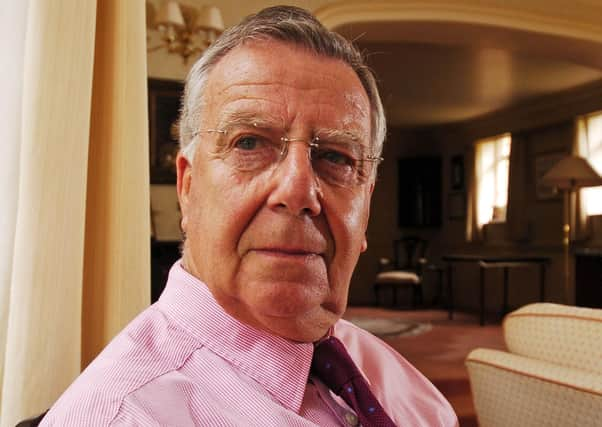Obituary: Sir Harry Ognall, barrister and judge


Sir Harry Ognall, who has died at 87, was a Yorkshire-based barrister and High Court judge who played a crucial role in two of the most notorious murder cases of the late 20th century.
In 1981, when Peter Sutcliffe, the so-called Yorkshire Ripper, appeared at the Old Bailey charged with murdering 13 women and attempting to murder seven more, it was Ognall’s interrogation of the forensic psychiatrist Dr Hugo Milne that put paid to any suggestion that their killer was acting on some self-styled “divine mission”.
Advertisement
Hide AdAdvertisement
Hide AdOgnall’s involvement in another famous case was less celebrated at the time. In July 1992, 23-year-old Rachel Nickell was murdered on Wimbledon Common and Colin Stagg, a single man living nearby, was suspected of the crime.
But in the absence of physical evidence, the police had set about procuring a confession by means of a policewoman using a pseudonym.
Stagg was charged but when he appeared before Ognall, by now a judge, the case was thrown out. The conduct of the police, said Ognall, had been “deception of the grossest kind”.
He was vilified by sections of the press, and was not vindicated until 14 years later, when Robert Napper, who was in Broadmoor for the 1993 murder of a woman and her four-year-old daughter, admitted that he was also the killer of Ms Nickell.
Advertisement
Hide AdAdvertisement
Hide AdHarry Ognall was born in Salford but brought up largely in Leeds, and remained close to the city.
He was one of three children of Leo – who wrote nearly 100 detective novels under the pen names Hartley Howard and Harry Carmichael – and Cecilia, the child of Polish immigrants who had fled the pogroms and settled in Leeds.
The young Harry attended Leeds Grammar, before going up in 1953 to Lincoln College, Oxford, to read Law. He served as president of the University Law Society and obtained a scholarship to the USA to take a Master’s at the University of Virginia.
Called to the Bar at Gray’s Inn in 1958, he did his pupillage in Leeds and became a member of the North-Eastern Circuit.
Advertisement
Hide AdAdvertisement
Hide AdHe began to specialise in criminal work, and moved in the early 1960s to chambers on Park Square, Leeds, appearing for both the prosecution and defence in many high-profile cases.
By 1981, when Sutcliffe was charged, he was one of the leading criminal barristers in the country, and had been selected to lead the prosecution. But the Attorney General, Sir Michael Havers, pulled rank and decided he wanted the leading role for himself – a decision that led to friction, as Havers was said to be disposed to accepting the Bradford lorry driver’s defence of diminished responsibility.
In his 2017 memoir, A Life of Crime, Ognall vilified Havers’ cross-examination of Sutcliffe as “a civilised dialogue at an academic level between equals”.
In 1983 Ognall branched out to Africa to defend six Zimbabwe Air Force officers who faced the death penalty for allegedly blowing up 13 aircraft. He got them acquitted and in time Robert Mugabe was persuaded to set them free.
Advertisement
Hide AdAdvertisement
Hide AdThe same year, Ognall was elected a Master of the Bench at Gray’s Inn, and knighted three years later, at which time he was appointed to the Queen’s Bench Division of the High Court.
He retired in 1999, but became a Deputy Lieutenant of West Yorkshire from the following year. He was also chairman of the Criminal Committee of the Judicial Studies Board, and vice-chairman of the Parole Board.
A long-time resident of Ilkley, he married Elizabeth Young in 1977 and had two stepsons and two sons and a daughter from a first marriage.
Comment Guidelines
National World encourages reader discussion on our stories. User feedback, insights and back-and-forth exchanges add a rich layer of context to reporting. Please review our Community Guidelines before commenting.